Educate & Empower a Diverse Student Body
Davis College of Agricultural Sciences & Natural Resources
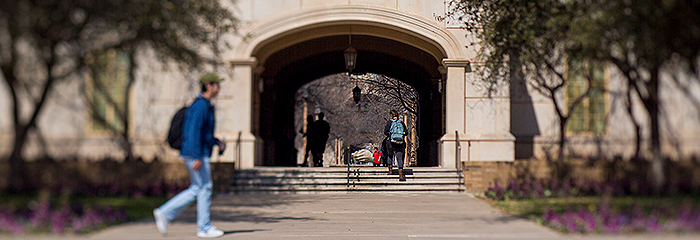
Goals
- Advance and sustain a campus climate and culture characterized by accessibility, inclusiveness and high academic quality.
- Nurture and enhance a learning environment that fosters success and wellness.
- Deliver unique and transformative learning opportunities and experiences.
- Increase retention, graduation rates, and placement of graduates.
Strategies
- Enhance diversity of our faculty and student population through targeted recruitment and retention activities.
- Provide exceptional curriculum and student support to ensure retention and completion of degree.
- Dedicate adequate resources to address infrastructure needs related to personnel and facilities that keep pace with enrollment growth.
- Increase awareness of the diverse career opportunities for Davis College students.
- Increase opportunities for international programs and partnerships to recruit international students and support more study abroad experiences.
- Enhance curriculum with high impact learning opportunities (including internships, research, service learning, study abroad, and entrepreneurship) to meet the needs of our student body to be leaders in the industries we serve.
- Improve students' essential skills related to communication, problem solving, critical thinking, decision making, leadership, and ethical behavior.
- Cultivate a supportive environment for faculty to improve their teaching effectiveness while acknowledging the workload dedicated to this crucial mission.
- Maximize effectiveness of faculty advising through the adoption of a sustainable advising model to provide students with both academic guidance and career mentoring.
- Increase online course and degree delivery opportunities.
- Engage with alumni, state and federal agencies, and private industry to seek feedback to inform curriculum development efforts, create internship opportunities for students, and ensure job placement of graduates.
Strategic Initiatives
Bill Bennett Student Success Center – This center is a crucial hub to continue supporting the recruitment and retention efforts of the college. This center can also provide resources for study abroad, student organizations, Congressional internships, and alumni engagement. In addition, renewed emphasis on diversity and inclusion are necessary to best serve our students, faculty, and staff. This center can also foster the development of high-impact learning opportunities, innovative curriculum, and student mental health support.
Davis College Faculty Academic Council – A council comprised of faculty members from each department in the college who will discuss issues of importance to the faculty related to advising, teaching, research, outreach, mentoring and more. This council will provide a unified voice to present recommendations to college leadership and inform the development of new initiatives and programs.
Matador Institute of Leadership Engagement (MILE) – This program presents a unique opportunity to provide our students with leadership and professional development opportunities while they learn more about future career possibilities. It is important to extend the reach of this program to involve more students in the college and build networks with alumni and supporters.
Focus on Enhancing Agriscience Communication – Individuals outside of agriculture and natural resource areas of expertise are asking vital questions about industry practices and impacts. Regardless of the academic discipline, effective communication skills are vital to provide information in meaningful ways. Additionally, improving both undergraduate and graduate students' communication skills will lead to more employees that are successful and improve their ability to make broader contributions to society.
Table 1 - Targets
| College of Agricultural Sciences & Natural Resources | 2016 | 2017 | 2018 | 2020 Target | 2025 Target |
|---|---|---|---|---|---|
| 1-year retention rate of FTIC freshman* (Fall) | 86.5% | 89.1% | 87.3% | 90% | 91% |
| 6-year graduation rate of FTIC freshman* (Fall) | 2011 68.2% |
2012 71.0% |
2013 69.7% |
2015 71% |
2020 72% |
| 4-year graduation rate of FTIC freshman* (Fall) | 2013 51.0% |
2014 45.4% |
2015 54.9% |
2017 55.5% |
2022 57% |
| Percent of FTIC enrollment ^ (Fall) - African-American/Black - Asian - Hispanic |
2.59 .37 14.44 |
2.34 78 29.43 |
2.14 .71 23.10 |
2.5 .75 24 |
4 1.5 27.5 |
| Number or baccalaureate degrees awarded ** (FY) | 381 | 422 | 446 | 465 | 500 |
| Number of master's degrees awarded ** (FY) | 78 | 88 | 102 | 118 | 150 |
| Number of doctorate degrees awarded ** (FY) | 30 | 31 | 41 | 42 | 55 |
| Number of undergraduate students enrolled ** (Fall) | 1,752 | 1,902 | 2,070 | 2085 | 2189 |
| Number of graduate students enrolled ** (Fall) | 420 | 401 | 417 | 400 | 420 |
| Number of students studying abroad @ (CY) | 60 | 43 | 60 | N/A | 75 |
| Total student credit hours ** (FY) | 43,359 | 47,900 | 50,186 | 51,189 | 53,748 |
| Regional site enrollment ~ (Fall) | 0 | 4 | 5 | 5 | 20 |
| Student credit hours per full time student (undergraduate) ^ (Fall) | 12.36 | 11.87 | 11.22 | 13 | 15 |
| Number of student credit hours taken online (undergraduate & graduate) ** (FY) | 2214, 997 | 2623, 1373 | 2877, 1311 | 3020*, 1337* | 3201, 1417 |
| Total number of faculty (FTE and Headcount, Excluding TA-GPTI) ** (Fall) | 120.56, 137 | 125.2, 140 | 128.3, 144 | 128.3, 144 | 130.3, 146 |
| Student-to-faculty ratio (THECB) ** (Fall) | 16 | 15 | 16 | 15 | 15 |
| Presidential Scholarships awarded + (Fall) (undergraduate & graduate) | 114, 54 | 210, 114 | 326, 174 | 330, 178 | 360, 198 |
| Average FTIC ACT/SAT scores ^ (Fall) | 24/ 1092 | 24/ 1140 | 25/ 1153 | 26/ 1167 | 27/ 1190 |
* Texas Tech University Fact Book
** TTU Metrics for Colleges and Departments; http://www.depts.ttu.edu/irim/CollegeProfiles/IR_OnlineSCH.php
^ IR; Vicki West
+ Scholarships Office – Jennifer Fauls
~ College Profiles; http://www.depts.ttu.edu/irim/CollegeProfiles/IR_RegionalSite.php
@ Study Abroad Office
Inside
Introduction
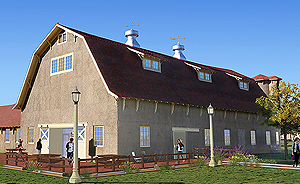
Teaching
Educate & Empower A Diverse Student Body
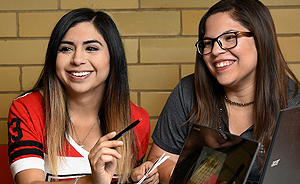
Research
Enable Innovative Research & Creative Activities
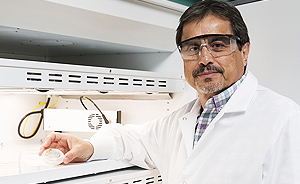
Service/Outreach
Transform Lives & Communities Through Strategic Outreach & Engaged Scholarship
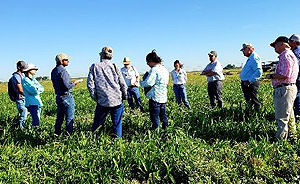
Davis College of Agricultural Sciences & Natural Resources
-
Address
P.O. Box 42123, Lubbock, Texas 79409-2123, Dean’s Office Location: Goddard Building, Room 108 -
Phone
(806)742-2808
